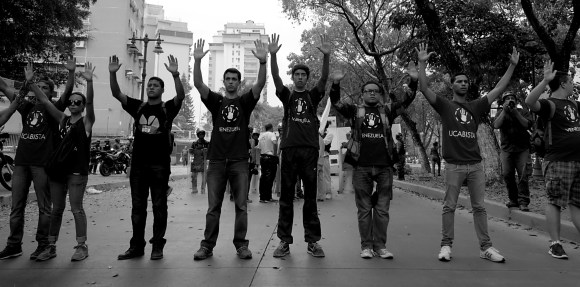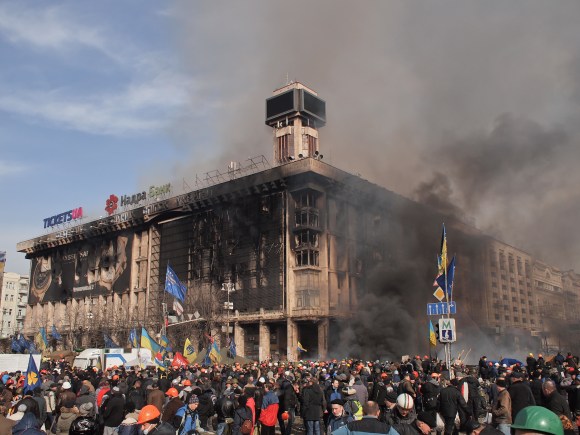
John,* a Wikimedia volunteer in Venezuela, has witnessed years of political, economic, and social crises, and says that people invest “great effort” when leading their lives in the country today.
An economist from a small town near the capital, John emphasizes that uncontrolled inflation, which has led to the decreased purchasing power of the Venezuelan bolívar, has left the majority of the country without basic goods like bread, toilet paper, flour, butter, and even medicine. The unemployment rate has skyrocketed, along with crime and corruption. Hunger and health care have reached what Human Rights Watch has termed a “humanitarian crisis.”
While John says that the conditions have made him and his colleagues feel “very lonely in delivering the mission of free knowledge,” he also takes care to note that “resiliency is vital in coping with the daily stress of living in such conditions.” One part of that is making sure that complete and informative Wikipedia articles are there for a country where nearly half of the adults in the country have never completed a year of secondary education, and less than half of the children attend a secondary school. “Filling this educational gap is a key part of building a new nation,” John says, “where education becomes an issue of national interest.”
It can also involve advocacy, in his view. John agrees with the broad goals of the demonstrators and actively participates in some of them; he believes that “The mission of bringing free knowledge to all citizens of a country is contrary to the precepts that a totalitarian regime may seek to impose on a society.”

Some similar challenges are being confronted in Ukraine, which has gone and is going through a period of severe public unrest (“Euromaidan”), a revolution, the War in Donbass, and the Russian annexation of Crimea.
Ukrainian Wikipedia volunteer editors recall the violent challenges of a country in turmoil all too well, as one of their own was killed by a sniper while protesting against the government in February 2014. Several others participated in those same events, many of which carried cameras to visually document the protests—images that are now categorized by month on Wikimedia Commons, and available for anyone to use under free licenses.
Vira Motorko of Wikimedia Ukraine recalled some of her free time at the Euromaidan protests, and was surprised at how well they were run. “I once spent a night in a Euromaidan warehouse to sort clothes we received,” she said, and noted that the operation “was organized like a small country.” Motorko found that the developing conflict changed what readers came to read about on the Ukrainian Wikipedia, as they flocked to articles like “Blondeau slug,” a form of ammunition that was being used on civilians during the protests.
Even though the war is primarily confined to Donbass, located in the eastern portion of the country, 1.4 million Ukrainians have been internally displaced (as of 2015), and tens of thousands have been killed or injured (as of last month). That’s why volunteer editor Білецький В.С.—the individual with the highest number of edits on the Ukrainian Wikipedia—told us that the war has affected every Ukrainian in some way, including Wikipedians.
The local Wikimedia chapter has attempted to reach out to the war-torn part of the country with 21 different events, including a series of editing workshops at various libraries and schools in Luhansk Oblast, the province at the heart of the War in Donbass. “The tour was intended to show that Wikipedia cares about the region,” Motorko said. “It is sometimes said that different regions do not hear each other in Ukraine. In order to be heard, someone needs to talk, and there are few Ukrainian Wikipedia editors from the east.”
These efforts, and those of hundreds of other Wikipedians in conflict or crisis zones around the world, are not easy. But as Motorko says, “Wikipedia is a place for all kinds of information”—and that’s because of the people who volunteer their time to find reliable sources and document the world around them. You can join them today.
Ed Erhart, Editorial Associate
Wikimedia Foundation
Our thanks go out to everyone who responded for this piece; we regret that we were not able to include everyone contacted.
*Some names have been changed.

Can you help us translate this article?
In order for this article to reach as many people as possible we would like your help. Can you translate this article to get the message out?
Start translation